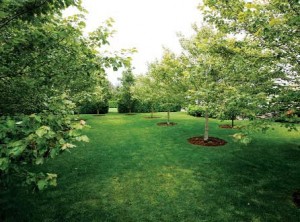
The Trust welcomes fee land parcels as gifts. In addition, when appropriate the Trust will work with owners to purchase open land parcels for conservation purposes. The Trust works directly with owners and legal and financial advisors to manage the process of transferring open land to the Trust.

The Trust accepts conservation easements (known as a Conservation Restriction – CR in Massachusetts) and will facilitate the process to create and complete a conservation easement approval within the scope of the laws of the state of Massachusetts.
No contribution is as enduring and irreplaceable as open land. Through a gift or bargain sale, we can help you make sure that the land you love is permanently protected as open space.
The ’Sconset Trust will steward the land in perpetuity, protecting its natural beauty and the conservation values you cherish. Depending on your goals and vision for the future of the property, the Trust may agree to add trails, keep fields open or simply allow nature to take its course without human intervention.
Helpful definitions and frequently asked questions:
A CONSERVATION GIFT IS
A donation of land, or a conservation restriction (easement) on a piece of land, to a qualified land trust or governmental agency.
WHY MAKE A CONSERVATION GIFT?
Because you wish to preserve the natural features and environmental significance of your property and ensure that your successors will respect your wishes. In addition the entire community receives a benefit as a result of reduced building density, open views and an on-going historical preservation in the Village.
ARE THERE TAX ADVANTAGES?
A conservation gift may generate income, estate, or property tax savings for you and your heirs. Together, these incentives can be substantial. Attorneys and tax professional should be consulted.
ARE THERE OTHER ADVANTAGES?
A well-planned conservation gift may avoid future conflict over a family-owned estate.
WHO MAY ACCEPT A CONSERVATION GIFT?
Non-profit land trusts and conservation organizations, municipal conservation commissions, and conservation agencies are qualified recipients. Many owners choose to work with private organizations whose goals they share and support.
WHAT IS THE DIFFERENCE BETWEEN A GIFT OF LAND AND A CONSERVATION RESTRICTION?
A gift of land transfers ownership and management responsibility to the conservation organization. A conservation restriction (CR) permanently limits development and protects conservation values of the property, but leaves ownership and management responsibilities in private hands.
HOW DOES A CR WORK?
A CR is a legal agreement permanently protecting scenic and natural features and ensuring that protected areas will not be developed or subdivided. The donor grants the CR to a qualified organization, which in turn agrees to monitor the restricted property and enforce the CR in perpetuity. The donor/grantor continues to own and use the property, always subject to the CR’s terms. CRs have been authorized by Massachusetts General Laws, Chapter 184, since 1969.
HOW DOES A CR AFFECT THE OWNER’S USE OF THE LAND?
Except for rights expressly granted in the CR document, the owners continue to use and control the land as they wish.
Each CR is tailored to the property’s special features and the donor’s objectives. In most cases, the CR prohibits development and subdivision, road building, and other uses that would damage the land. It usually permits woodland management, farming, fishing, boating, hiking, horseback riding, and similar activities.
Depending on property characteristics and the owner’s objectives, the CR donor may reserve the right to build specified additional structures within defined areas (“building envelopes”) of the CR parcel, or may exclude some land entirely from the CR.
HOW DOES THE TRUSTS DECIDE ON A PROPOSED CONSERVATION GIFT?
First, staff and volunteers learn as much as possible about the property and the owner’s objectives. Then, they measure the property against established conservation priorities and criteria.
WHAT IF A PROPERTY IS TOO VALUABLE FOR ITS OWNERS TO GIVE AWAY?
Often a carefully planned CR can solve this problem by keeping the cost of the gift at manageable levels. Even when an owner decides that land must be sold for development, a CR on a portion of the property can prevent sprawl and reduce the impact on conservation values. Our staff and advisors will be glad to discuss options with the landowners and design a CR, if appropriate.
For more information please contact the Trust office.


